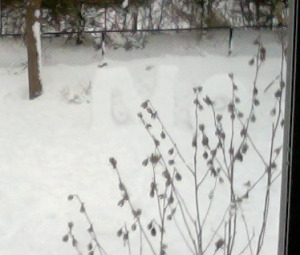Parable of the Two Sons, Matthew 21:28-31(32)
“What do you think? A man had two sons; he went to the first and said, ‘Son, go and work in the vineyard today.’ He answered, ‘I will not’; but later he changed his mind and went. The father went to the second and said the same; and he answered, ‘ I go, sir’; but he did not go. Which of the two did the will of his father?” They said, “The first.” Jesus said to them, “Truly I tell you, the tax collectors and the prostitutes are going into the kingdom of God ahead of you.” (For John came to you in the way of righteousness and you did not believe him, but the tax collectors and the prostitutes believed him; and even after you saw it, you did not change your minds and believe him.)
Be careful what you say; you can’t take those words back.
I don’t remember when my parents told me this, or if these were the exact words. These are the words I hear when I’m about to tell a secret or a lie. I hear them when discussion starts to go south, turning into argument. And the companion that goes along with this truth:
If you say it, you mean it.
I don’t mean that words said in anger are the ones that people live by at all times. Still, when angry and bitter words come, they come from somewhere; there is a time and a place in the heart where the words are true. When they are spoken, they take on a life in the heart of the hearer as well as in the speaker, changing each. Grace and forgiveness are needed to grow past them.
When the first son said no, he meant it. Later he thought better of it and his actions show he meant a yes. When the second son said yes, he meant it. Later he thought worse of it and his actions meant a no. Neither of these sons can take back their words. They can make good on them or they can turn away from the reality they created, living out their father’s request or letting it go unfulfilled.
This parable gives me hope even as it confirms what I’ve believed about words: they count, and they can’t be unsaid. But I can think better of them and work to change the reality they created. And when I pay lip service without true service, even then, there is a place in my heart that holds the yes. With grace and forgiveness, I just may find it.

